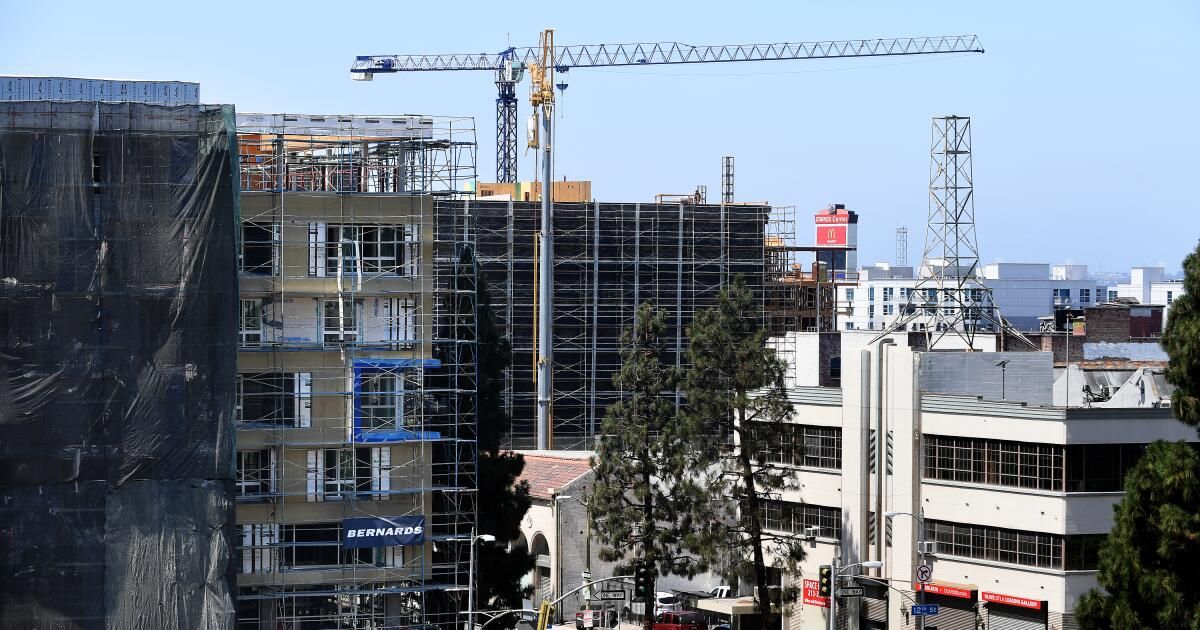To the editor: The problem with the so-called mansion tax implemented by Measure ULA in the city of Los Angeles is the unintended consequences that outweigh any benefits it may generate. (“Los Angeles ‘Mansion Tax’ Has Raised $375 Million. Where Does the Money Go?”, Sept. 6).
The tax doesn’t just apply to “mansions”; it also includes all real estate sales over $5.1 million and is the main reason developers no longer build residential apartments in Los Angeles. Developers often work on a 15% to 20% markup, and the additional 5.5% tax on transfers over $10.3 million (and 4% on those over $5.1 million) makes their projects unsustainable.
With new rental housing projects stalled, the city no longer gets a percentage of newly built units for low-income people and there is less “improvement” housing for those on cheap rents. The benefit goes to a handful of lucky renters, while hurting the majority who can’t find apartments.
Richard Klug, Los Angeles
..
To the editor: The Measure ULA tax is deeply flawed and deeply unfair to many people.
In my case, my house has appreciated in value over the last 10 years since I bought it to about $5.25 million. I have a lot of equity in the house, but also a lot of debt. My wife and I need to sell and want to downsize the house, but selling the house with this new ULA tax will cost us about $200,000. That is money we desperately need and was always part of our retirement plan.
The ULA tax assumes that anyone who owns a home worth more than $5 million is rich. That is simply not true, especially in an expensive city like Los Angeles.
The tax should be repealed in its current form and made fairer for everyone.
Philip Korman, Los Angeles












